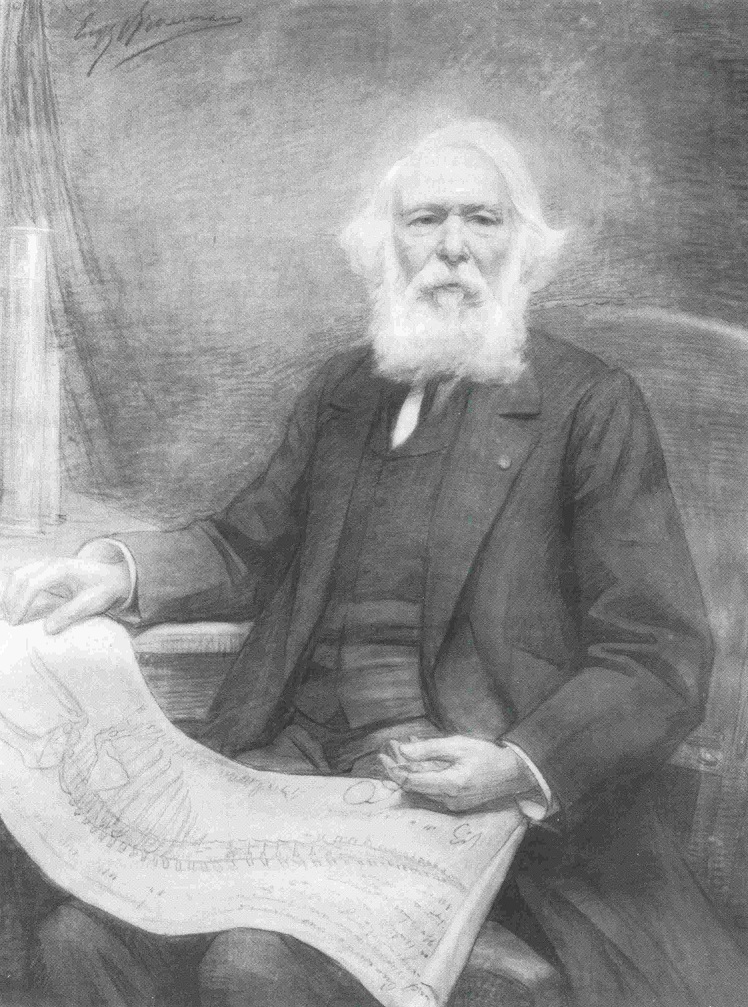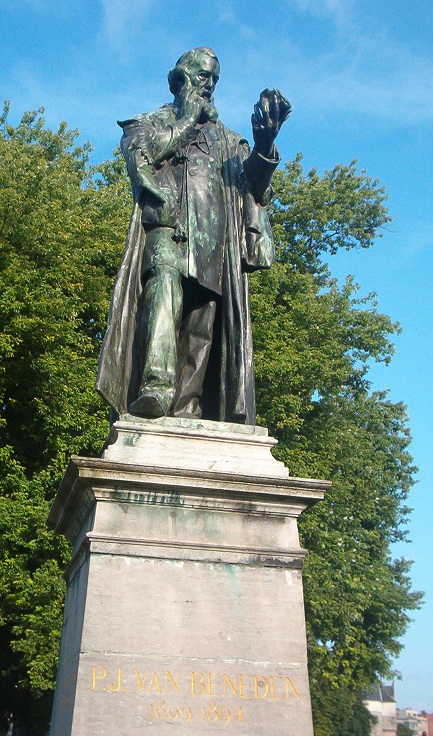<Back to Index>
- Zoologist Pierre Joseph van Beneden, 1809
- Writer Aron Ettore Schmitz (Italo Svevo), 1861
- President of Czechoslovakia Antonín Zápotocký, 1884
PAGE SPONSOR


Pierre - Joseph van Beneden (19 December 1809 – 8 January 1894) was a Belgian zoologist and paleontologist.
Born in Mechelen, Belgium, he studied medicine at the University of Louvain, and studied zoology in Paris under Georges Cuvier (1769 – 1832). In 1831 he became curator at the natural history museum in Leuven, and from 1836 until 1894 was a professor of zoology at the Catholic University in that city. In 1842 he became a member of the Academy of Science of Belgium, and in 1875 a member of the Royal Society of London. He was the father of biologist Edouard van Beneden (1846 – 1910).
Van Beneden was a specialist in the field of parasitology, and was the first scientist to describe the complete life cycle of the tapeworm. His best known written work on parasites was the 1875 Les Commensaux et les parasites dans le règne animal. He did extensive research in marine biology, and in 1843 established an aquarium and marine laboratory in Ostend. In 1858 a memoir of his on this subject won the "Grand prix des sciences physiques" of the Institut de France. Also, with French zoologist Paul Gervais (1816 – 1879), he published an important work on extinct and living cetaceans titled Ostéographie des Cétacés, vivants et fossiles. His interest in this matter had begun during the excavations rendered necessary by the fortifying of Antwerp, when a number of bones of fossil whales were exposed to view. His papers on the extinct species found near Antwerp were published in the Annales du musée royal d'histoire naturelle de Brucelles, and with them was incorporated a description of the fossil seals which were discovered in the same neighbourhood.
Van Beneden attended the celebration of the tercentenary of Edinburgh University, and was there made an honorary LL.D. He was a foreign member of the Royal Society and also of the Linnæan, Geological, and Zoological Societies of London. He was president of the Royal Belgian Academy in 1881, and was created Grand Officer of the Order of Leopold on the occasion of his professorial jubilee. He was elected a Foreign Honorary Member of the American Academy of Arts and Sciences in 1886. He died in Leuven aged 84. He was always a devout Catholic, though as the writer of his obituary for the Royal Society particularly states, always exhibited "the widest toleration for the views of others".